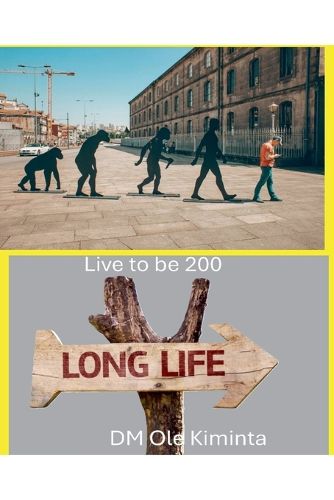Readings Newsletter
Become a Readings Member to make your shopping experience even easier.
Sign in or sign up for free!
You’re not far away from qualifying for FREE standard shipping within Australia
You’ve qualified for FREE standard shipping within Australia
The cart is loading…






The quest for extended lifespans has captivated humanity for centuries, intertwining with our deepest desires for longevity and vitality. From ancient myths of the Fountain of Youth to modern scientific inquiries into the biology of aging, the pursuit of longer lives is both an age-old aspiration and a contemporary challenge. As we stand on the brink of significant advancements in biotechnology and genetic research, the question of why we cannot naturally live to be 200 years old becomes increasingly relevant. Understanding the biological mechanisms of aging and the limits imposed by our genetic makeup is essential for unraveling the mysteries of longevity.
Longevity, in the context of living organisms, refers to the lifespan of a creature, encompassing its ability to survive and thrive over extended periods. This concept is not merely about the duration of life but also involves the quality of life experienced throughout those years. Various species exhibit unique adaptations that contribute to their remarkable longevity, ranging from genetic factors to environmental influences. The study of longevity provides insights into the biological processes that enable certain organisms to defy conventional age limits, revealing the intricate relationship between life expectancy and the conditions in which these beings exist.
Aging is a complex process influenced by a myriad of factors, including genetics, environmental conditions, and lifestyle choices. Researchers have identified several biological theories of aging, such as the damage accumulation theory, which posits that cellular and molecular damage accumulates over time, leading to the decline in bodily functions. Another prominent theory is the telomere shortening hypothesis, suggesting that the protective caps on our chromosomes shorten with each cell division, ultimately limiting the lifespan of cells. These theories illustrate that while we have made significant strides in understanding aging, the fundamental biological processes still pose substantial barriers to achieving lifespans of 200 years.
Advancements in medical science offer promising avenues for extending life expectancy. Innovations in regenerative medicine, gene therapy, and personalised medicine have the potential to address some of the age-related ailments that significantly impact our quality of life as we age
$9.00 standard shipping within Australia
FREE standard shipping within Australia for orders over $100.00
Express & International shipping calculated at checkout
The quest for extended lifespans has captivated humanity for centuries, intertwining with our deepest desires for longevity and vitality. From ancient myths of the Fountain of Youth to modern scientific inquiries into the biology of aging, the pursuit of longer lives is both an age-old aspiration and a contemporary challenge. As we stand on the brink of significant advancements in biotechnology and genetic research, the question of why we cannot naturally live to be 200 years old becomes increasingly relevant. Understanding the biological mechanisms of aging and the limits imposed by our genetic makeup is essential for unraveling the mysteries of longevity.
Longevity, in the context of living organisms, refers to the lifespan of a creature, encompassing its ability to survive and thrive over extended periods. This concept is not merely about the duration of life but also involves the quality of life experienced throughout those years. Various species exhibit unique adaptations that contribute to their remarkable longevity, ranging from genetic factors to environmental influences. The study of longevity provides insights into the biological processes that enable certain organisms to defy conventional age limits, revealing the intricate relationship between life expectancy and the conditions in which these beings exist.
Aging is a complex process influenced by a myriad of factors, including genetics, environmental conditions, and lifestyle choices. Researchers have identified several biological theories of aging, such as the damage accumulation theory, which posits that cellular and molecular damage accumulates over time, leading to the decline in bodily functions. Another prominent theory is the telomere shortening hypothesis, suggesting that the protective caps on our chromosomes shorten with each cell division, ultimately limiting the lifespan of cells. These theories illustrate that while we have made significant strides in understanding aging, the fundamental biological processes still pose substantial barriers to achieving lifespans of 200 years.
Advancements in medical science offer promising avenues for extending life expectancy. Innovations in regenerative medicine, gene therapy, and personalised medicine have the potential to address some of the age-related ailments that significantly impact our quality of life as we age